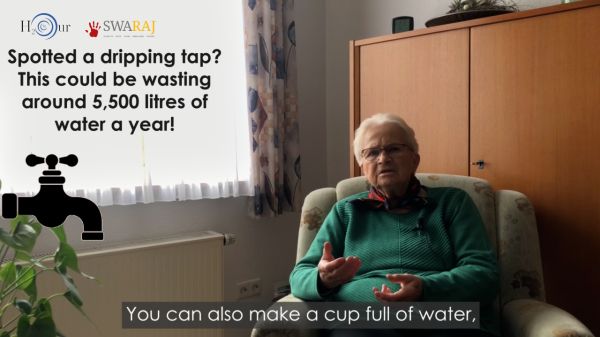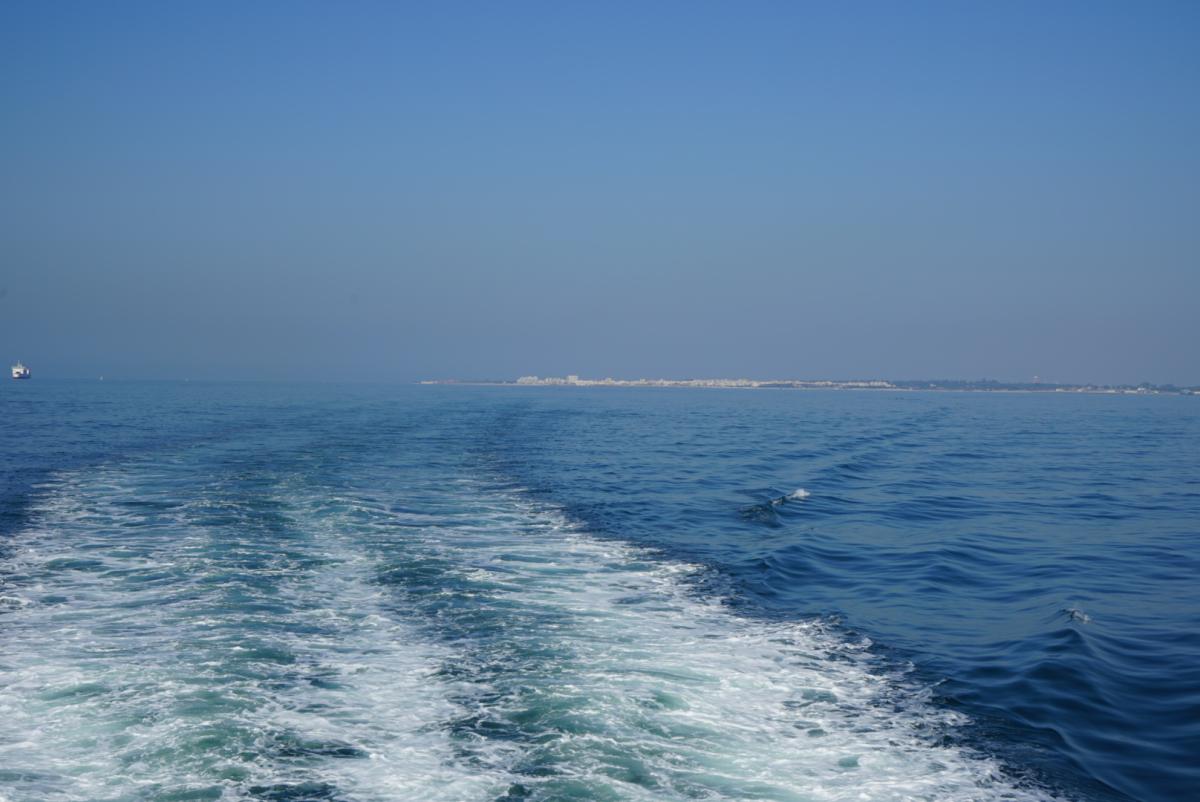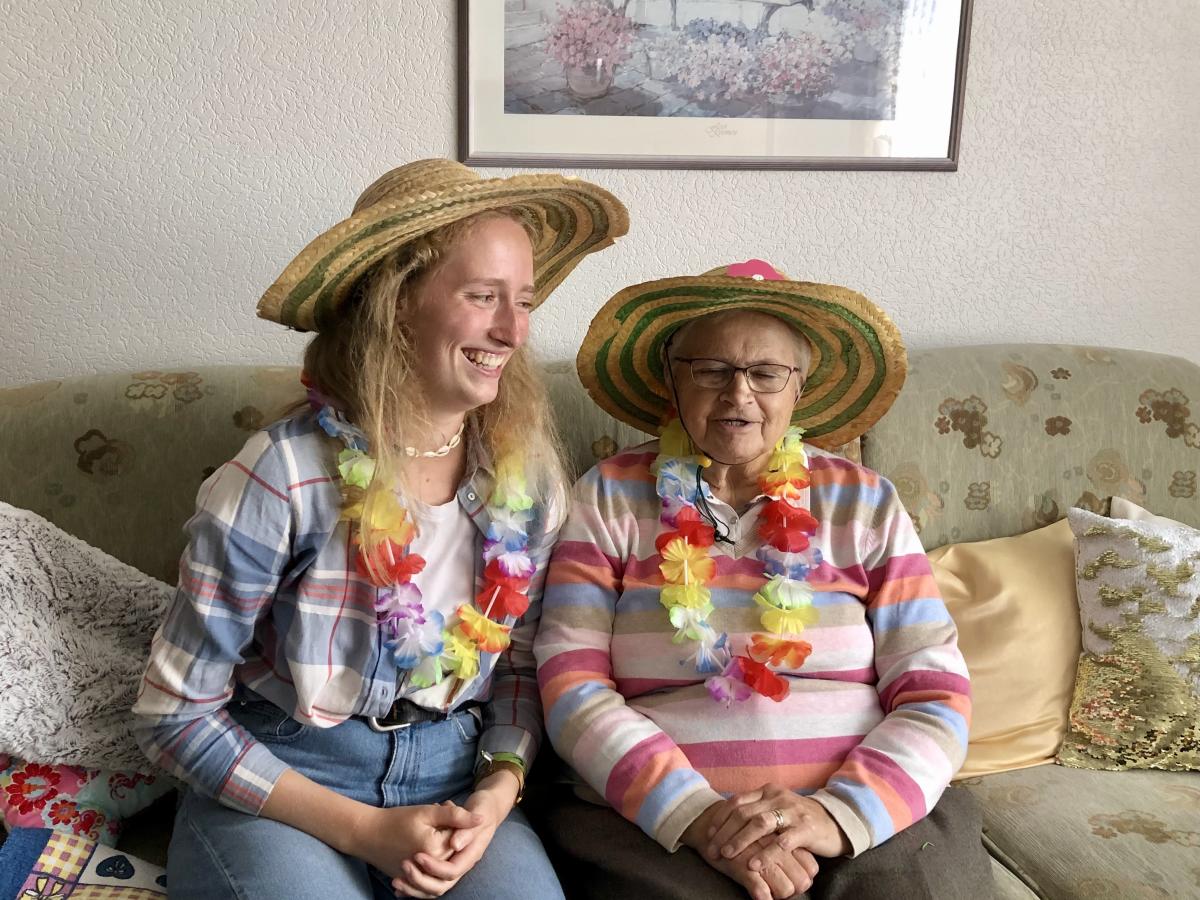Water Reflections Across Generations

Welcome to our blog series, CEE-Change, Together. Each month, NAAEE will post narratives from the CEE-Change Fellows as they implement their community action projects and work to strengthen environmental education and civic engagement capabilities, all supporting the mission of cleaner air, land, and water. Join us on their journey! The Civics and Environmental Education (CEE) Change Fellowship is NAAEE’s newest initiative to support leadership and innovation in civics and environmental education in North America. This ee360 program is a partnership between NAAEE, US EPA, and the Cedar Tree Foundation.
I hope this text finds you beneath a beautiful sky, maybe beside a lake, with the wind gently caressing your hair. And if it finds you somewhere else, try to think of a place where you can reconnect with your inner self and feel that you are part of nature. What does that place look like for you? For me, it always is somewhere near, on, or in water.

Growing up, my father would take me and my sister canoeing on the river behind our house at a very young age already. I’ve always lived next to a water body, even when I moved to Lüneburg and then Wageningen for my studies or to Berlin for work. For me, water is a place where I can catch my breath, and where I can find myself again in times of change, which is a privilege of course.
Water is key to solving some of the biggest challenges humanity is facing. Be they floods, droughts, hunger, health, or pollution, at the end of the day, water is the one thing that was, is, and will be critical for human survival itself. The way we treat our water right now, how (much) we use it, determines the life of future generations. Through water, we are connected not only to our cherished neighbors downstream but also to different cultures, climate zones, and generations. The Potawatomi, Algonquian Native American people, whose native land was located in the Great Plains and in the western Great Lakes regions of the United States, use the same water as the Chenchus, a native tribe of India with significant populations in Andhra Pradesh and Telangana.
Our ancestors and we, too, all have a story with water. In sharing these stories, we can learn a whole lot from and with each other, working together towards a more sustainable use of the precious resource.
 Now pause for a second, breathe, and read the previous sentence again, because that is exactly what we aim for with the H2Our project. In my CEE-Change Fellowship project, I teamed up with Gaurav Shorey, representing 5waraj, and we are re-activating traditional knowledge and gathering traditional wisdom on the use and appreciation of water. In doing so, we are collecting stories from community elders and are sharing those with younger generations, encouraging them to do the same with their elders, and creating public awareness towards a more sustainable use of water.
Now pause for a second, breathe, and read the previous sentence again, because that is exactly what we aim for with the H2Our project. In my CEE-Change Fellowship project, I teamed up with Gaurav Shorey, representing 5waraj, and we are re-activating traditional knowledge and gathering traditional wisdom on the use and appreciation of water. In doing so, we are collecting stories from community elders and are sharing those with younger generations, encouraging them to do the same with their elders, and creating public awareness towards a more sustainable use of water.

Key elements of our work in the H2Our project are the interviews and the stories told during those conversations, as they are a unique way of informal learning, far more intimate and intense. The first interview within the project was a very special one, as the interviewee was 86-year-old Marianne Borgers, my beloved grandma.
When I asked her if she would have a conversation about water with me, she immediately agreed and started telling me stories about their bathing rituals in former times. She told me about how their dog had to bathe last and would then sit in front of the oven until his fur was dry again. At that point I knew: I was about to discover a treasure of knowledge. So I gathered some equipment, set up a camera and a small microphone, and then we lost ourselves in a long, profound, and very teachable conversation.
Growing up in a small rural village in the county of North-Rhine Westphalia, Germany with strong catholic values, my grandmother Marianne and her family were privileged to have their own water access point right in front of their house. The quality of the water they got from there still exceeds quality standards today. Within our conversation, I had the chance to listen to her stories about washing clothes, bathing, and cooking and how over time, she recognized changes in water consumption: "Honestly, we are probably consuming more water in the household than before. Because the young ones, they just don’t turn the crane off when they brush their teeth and let it all run. It runs all, for nothing and again nothing.” – Marianne Borgers.

Confronting myself and several classes of German high school students with that truth, we realized how people treat(ed) water is different across climate zones, cultures, and generations. In addition, I took some major learnings with me:
- It is incredibly important to save and re-activate the knowledge of our elders, as within their memories lie valuable treasures of knowledge
- Informal conversations are an effective way to learn as learnings are connected to personal experiences and feelings of real people
- Sharing the learnings from our interviews has great impact, as it is time to re-anchor the value of water in our minds and adapt our use and appreciation of water to current and future challenges.
These learnings have led me to question the way of teaching and learning as it is practiced in schools and universities. Why did we never once have conversations with community elders? For sure, it is important to know about growth kinetics of microorganisms when you are designing a biological wastewater treatment system, but what else can we learn from just talking to our elders? Because they used water more sparingly the amount of wastewater that needed to be treated was lower in the first place.
Since the earliest human communities, water is always a place of community and inspiration. At the end of the day, water is my inspiration for the work I am doing within the H2Our project.